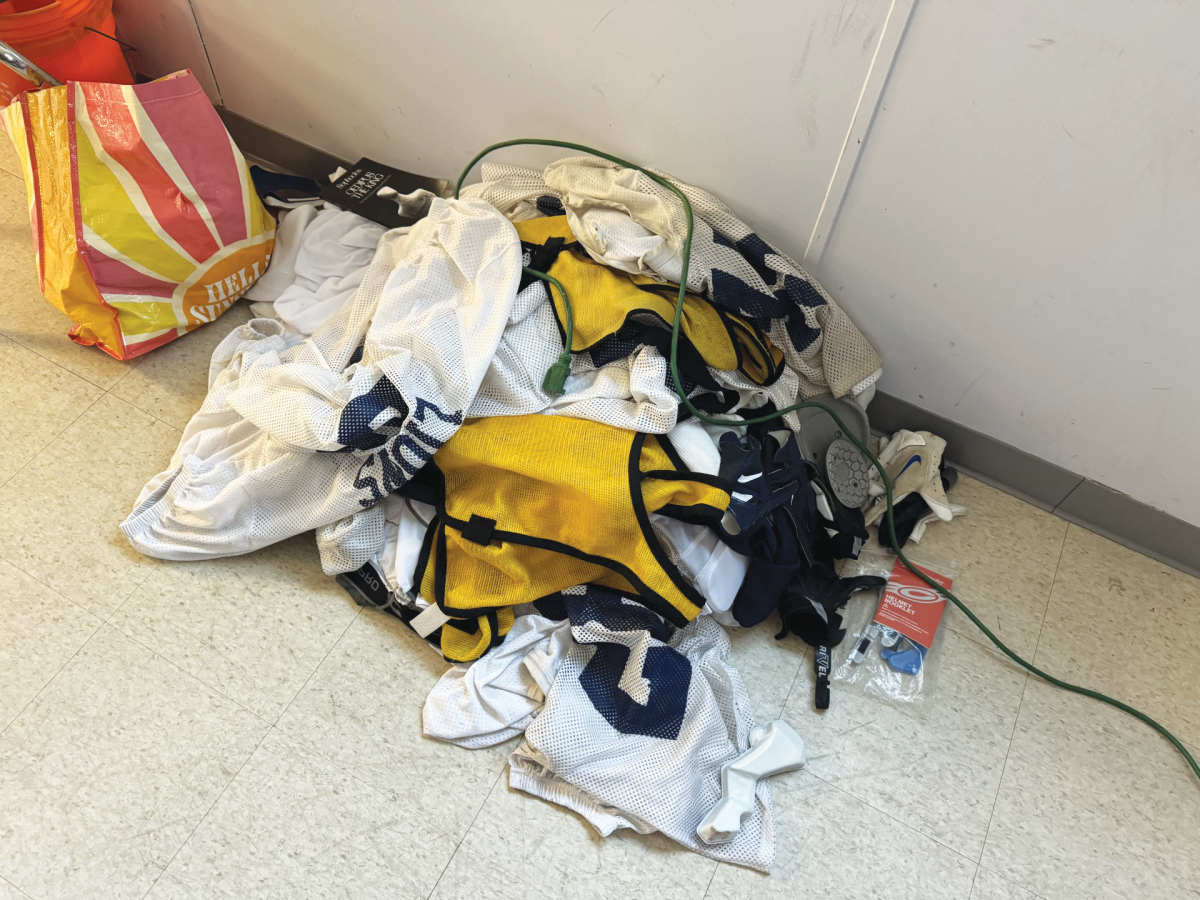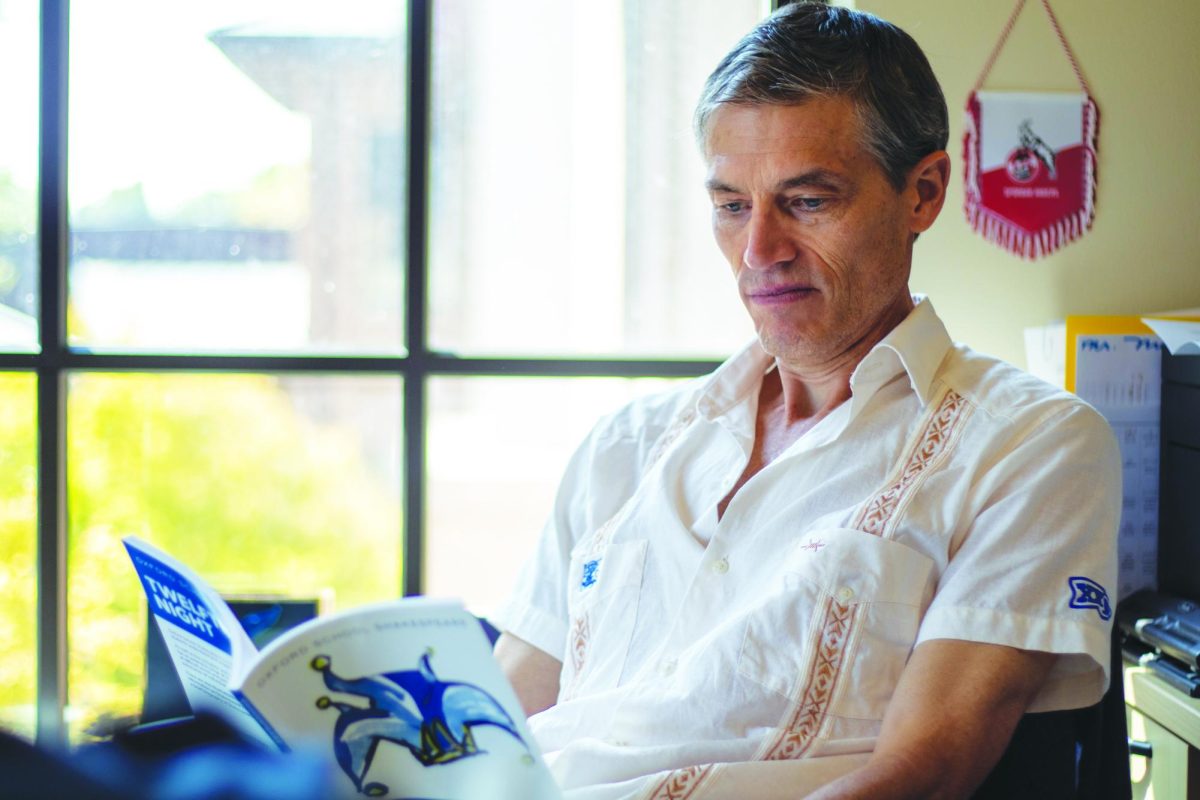At an all-boys school, hygiene can often be overlooked.
Late wake-ups and first-period tests can often result in tousled hair or unshaven beards.
Last-minute study sessions and forgotten deadlines lead to half-finished lunches and dirty gym bags.
Over time, small lapses in cleanliness add up. And the effects are not limited to messy hallways and study areas.
Students’ mental health, mood and even performance are all affected by the campus’ cleanliness.
And even though the school is far more equipped than ever before in terms of hygiene, there are still areas where the community can be cleaner.
School nurse Julie Doerge has noticed a massive improvement in hygiene on campus since the outbreak of the pandemic.
“Once COVID hit, we had to upgrade certain things, like air quality, in the whole school,” Doerge said. “We invested a lot and improved all of our HEPA (high efficiency particulate air) filters. Even in older buildings, we were able to upgrade the systems, which had to be almost the same as in the new buildings which is awesome. The HEPA filters in every room take out allergens, dust and some germs. That was a huge improvement for the school, and I believe it has helped us even now in our fourth year of COVID to keep people more safe in terms of illness and spreading germs.”
After students grew tired of the restrictive measures put in place during the COVID era, Doerge noticed an expected increase in cases of less concerning illnesses.
“For two years, we wore masks, and we were very healthy,” Doerge said. “We didn’t see any colds, we didn’t see strep throat, we didn’t see the flu. Now that we are back to normal, as everybody wants to be, we see an uptick in both flu, RSV and just regular colds. So we know that the bodies are now kind of going back to their old ways and picking up germs.”
Doerge agrees that the environment of a boys’ school can make cleanliness especially challenging, especially for younger students who are not as knowledgeable on the topic of sanitation.
“I think young men, especially as they come through middle school, don’t actually realize that they might need deodorant and need to take a bath,” Doerge said. “Once they sweat, bacteria multiplies under the arms and other parts of your body, which begin to smell. I also see the different foods that different families eat, whether it’s garlic or it’s turmeric or something else. That also plays a role in how we smell, and I think that can be a challenge. I have been asked in the past if I would call a family about certain kids, and I’m always willing to do that because I think that sometimes, parents or friends will tell you, ‘Dude, you’ve got to do something about this.’”
For young student-athletes, the challenge of maintaining personal sanitation increases exponentially. After hard practices, conditioning sessions or lifts, it can be hard to remember the little details, like leaving equipment out to dry or washing dirty clothes.
Athletic Trainer Natalie Bumpas usually deals with sports-related injuries like sprained ankles or bruised arms, but hygiene issues are equally debilitating for young athletes.
“We’ve had conditions that we’ve had to defer to dermatology just because we’re not sure what they are,” Bumpas said. “We just need to know what it is and get a diagnosis whether it’s bacterial or fungal, so we know how to treat it as well as different medicines to treat it or get rid of it.”
Bumpas believes that hygiene goes beyond what most people think of when it comes to cleanliness. To prepare students for college, she believes they must be taught to wash more than just themselves.
“Hygiene goes beyond just keeping yourself clean,” Bumpas said. “It’s making sure that clothes are laundered regularly, sheets are laundered regularly and blankets are laundered regularly. You need to wash off whatever sweat you have from when you’ve worn them.”
Equipment Manager Ronald Turner carefully washes and maintains every set of pads, jerseys and other equipment used by every sport. For Turner, hygiene maintenance is as important and routine as a helmet or shoulder pad safety check.
“You can get infections because of uncleaned equipment or uncleaned uniforms,” Turner said, “so we specifically request that all uniforms and equipment are kept clean. I can’t emphasize enough how much it means to me.”
While Doerge is pleased with the improvement in student hygiene since she arrived at the school, she believes there is a lot that can still be done to clean up campus.
“We’ve worked really hard on discussing mental health, and I think hygiene also fits perfectly into the theme of taking care of ourselves,” Doerge said. “I think we can always make the school a healthier environment.”
Cleaning up campus
Health and wellness experts across campus describe the effects of poor hygiene on students’ physical and mental health in areas like athletics, academics and social life.
March 8, 2024
Categories:
A pile of unclaimed football gear sits in the locker room.
More to Discover
About the Contributors
Akash Manickam, Digital Managing Editor
Winston Lin, Photo Editor








